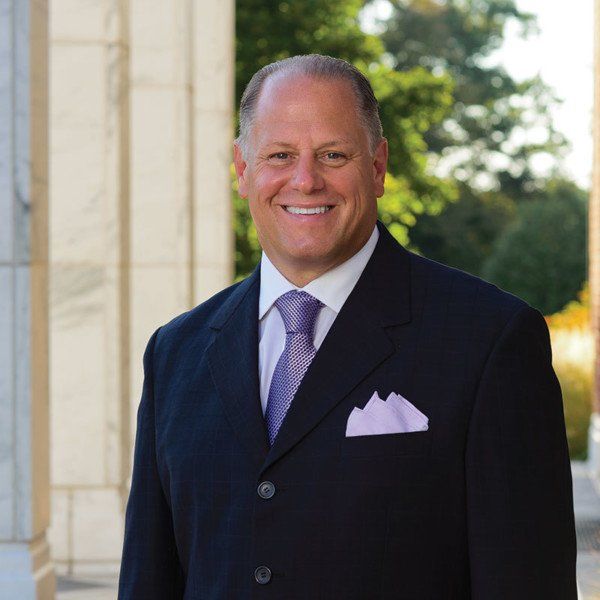Tooth Replacement Options | Replace Missing Tooth | Replacement Teeth
Missing a tooth? You're probably wondering which treatment is best for you and your mouth. Check out these 5 missing tooth replacement options!
Our teeth are easy to take for granted, but it's good to remember they don't last forever. By age 45, almost 70% of Americans are missing a permanent tooth. At age 50 this number of teeth jumps dramatically to an average of 12 missing teeth.
Even a single missing tooth can harm your confidence and make you less likely to smile for pictures. And it's not just about the cosmetics. According to the American Dental Association, missing teeth can affect your oral health by speech, chewing ability, and shift your surrounding chompers.
Whether you're missing a single tooth or multiple, there are several missing tooth replacement options. We'll cover some of the most common teeth replacement methods to protect your smile and your health and give you the healthy teeth you've always dreamed for!
Missing Tooth Replacement Options
Scared of seeing the dentist? You shouldn't be. No matter your budget, dental insurance, or personal needs, one of these five replacement options for missing teeth will make you smile.
1. Dental Implant
Perhaps the most ubiquitous tooth replacement method is the dental implant . A dental implant is one of the treatment options that resembles and feels like a real tooth. Since dental implants are permanent, you might even forget which tooth is a fake.
However, these implants require a significant amount of work. The dentist replaces the exposed tooth root with metal screws, which fix the fake tooth in the bone graft that's a temporary solution. After this, you'll have to wait several months for the area to heal before the dentist can fix the implant to the screw.
Compared to other dental options for missing teeth, dental implants are some of the most effective. They also provide the most natural feel, and since it's a permanent replacement you won't have to worry about routine checkups.
However, dental implants are one of the most expensive options. Since a screw post must be drilled in place, the surgery is invasive and might not be a great option for older individuals or those with health risks.
2. Implant-Supported Bridge
When you are missing several teeth in a row, an implant-supported bridge is an excellent type of dental bridge. Rather than fitting each missing tooth with a dental implant, a dentist fixes a row of fake teeth in place at both ends. The teeth between these two ends are simply held in place, without screwing or cementing.
An implant-supported bridge is economical under the right circumstances. The bridge is just as effective and realistic as dental implants.
However, it's only a good choice when you're missing several front teeth in a row. The treatment requires several dentist visits, and unlike dental implants, the bridge isn't permanent. At some point, it will have to be replaced.
3. Tooth-Supported Bridge
If you're concerned about both cost and surgery, consider a tooth-supported bridge. Rather than having two posts screwed into the roots of your teeth, a dentist fixes a tooth-supported bridge on top of existing teeth. Crowns slip over the teeth adjacent to the missing tooth and are cemented in place.
The treatment requires a few visits and can be done within a month. Just like with dental implants, a tooth-supported bridge will feel and look real. Plus, you won't have to worry about the risk or cost that comes with invasive surgery.
But not everything is perfect. The adjacent tooth anchors must be filed down to be fitted with crowns, increasing the possibility of future infection. Food is fond of slipping underneath the fake teeth, which means you must be especially meticulous with your cleaning or risk potential bone loss.
4. Removable Partial Denture
As an alternative to traditional dental implants, a removable partial denture provides similar results with the least amount of fuss. Unlike normal dentures, a partial denture might only have one or two teeth. The denture is clasped in place, holding the fake teeth in their appropriate gaps.
If you lose teeth in the future, sometimes a dentist can fix the denture with additional teeth, saving you time and money. Removable partial dentures are by far the cheapest option. They also require the least amount of work from your dentist, since the only adjustment to your teeth is the addition of metal clasps.
But while it's easy on your dentist, it may not be easy on you.
Partial dentures tend to be uncomfortable and much harder to clean than traditional implants, which work like real teeth. These dentures run the risk of being quite noticeable since the metal clasps can be visible.
5. Flipper
Named for its ability to be flipped in and out, a flipper is a temporary partial denture. This flimsy option is usually prepared in advance, such as when you're expected to have teeth extracted. Aside from quality, the biggest difference between a flipper and a partial denture is that a flipper doesn't have metal clasps.
In fact, no work is done whatsoever to the surrounding teeth. It's a cheap, painless way to cover up a missing tooth. Compared to a partial denture, it's the lighter option.
But lighter doesn't mean more comfortable. Since the flipper is meant to be temporary, it's bulky and flimsy, prone to breaking.
A flipper isn't a permanent method of true teeth replacement, but it's a good option when you need time to consider how you'll replace a missing tooth. Since other dental options can be a lengthy process, a flipper keeps your smile and biting ability intact during the wait.
Replace Your Missing Teeth
With a slew of missing tooth replacement options available, one is bound to fit your budget. If you fail to replace a missing tooth, the bone loss and shifting teeth could cause expensive problems down the road.
Dr. Jonathan Silverman has been serving the Baltimore area for over 30 years. Make the smart choice and request an appointment at the Maryland Center for Complete Dentistry.



